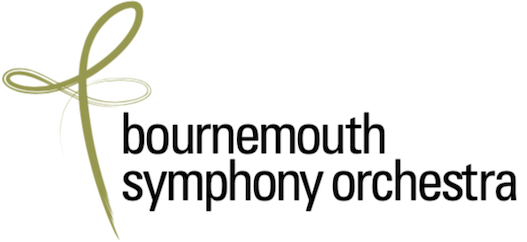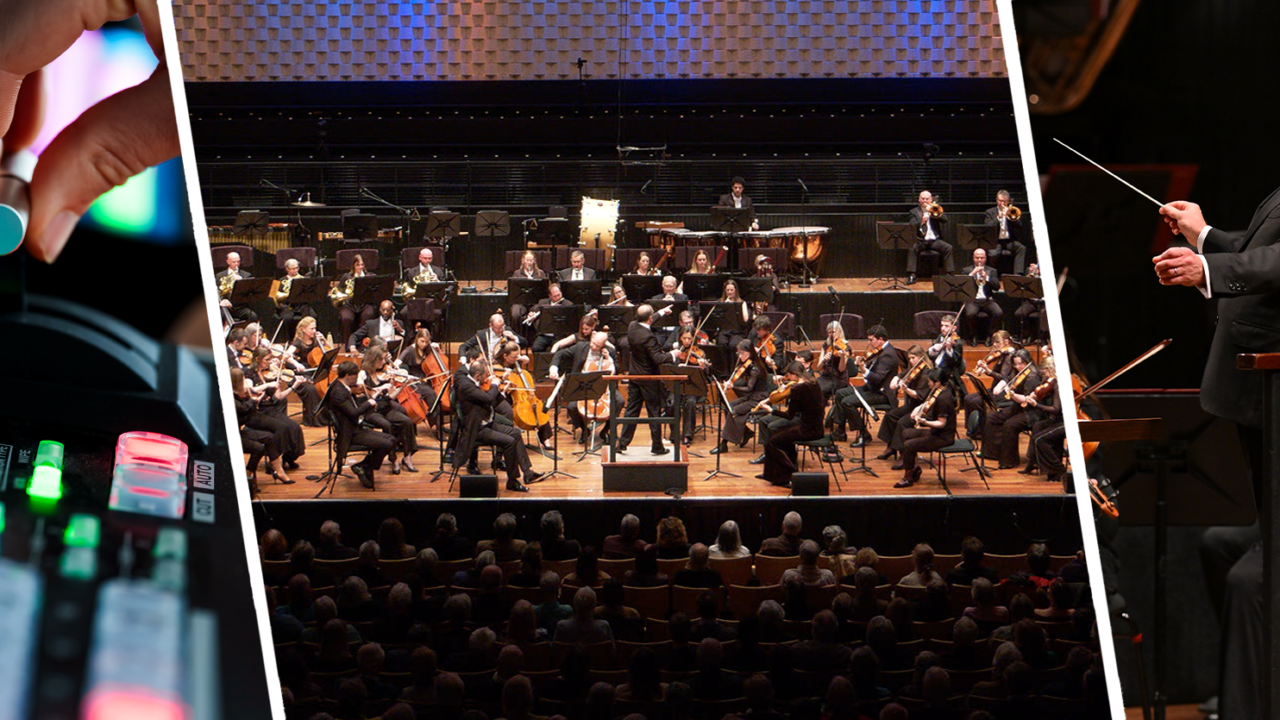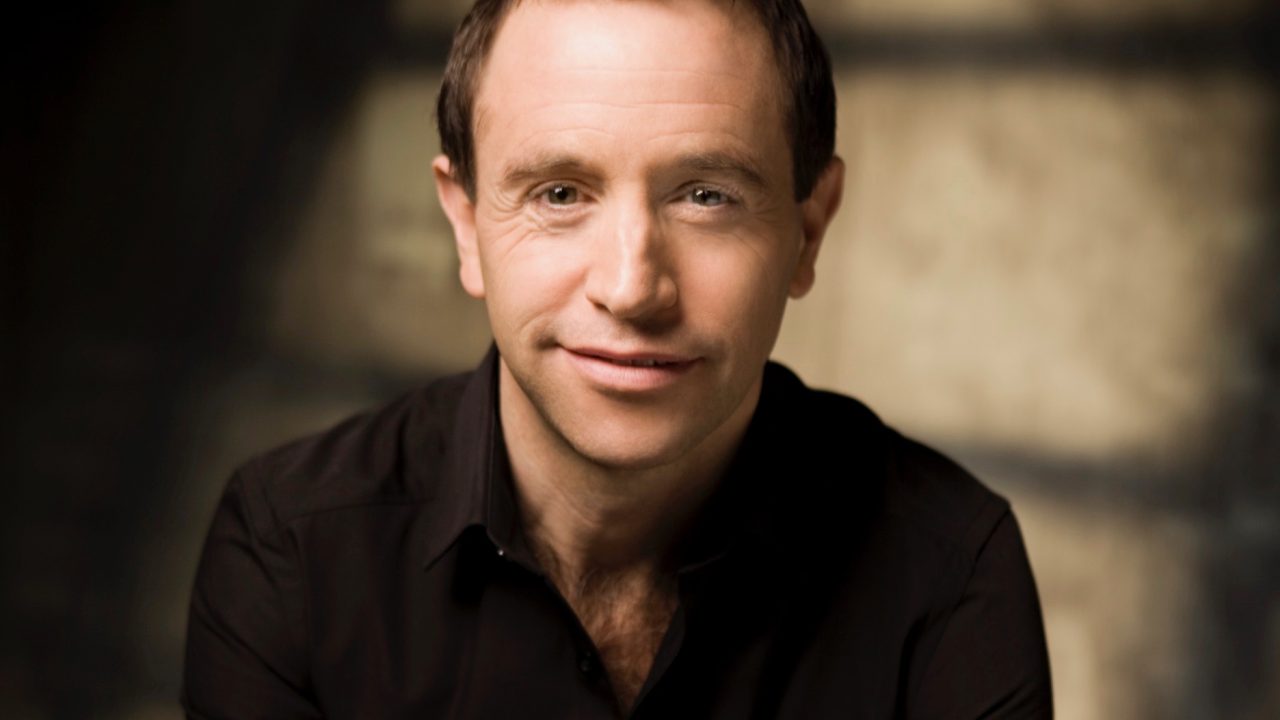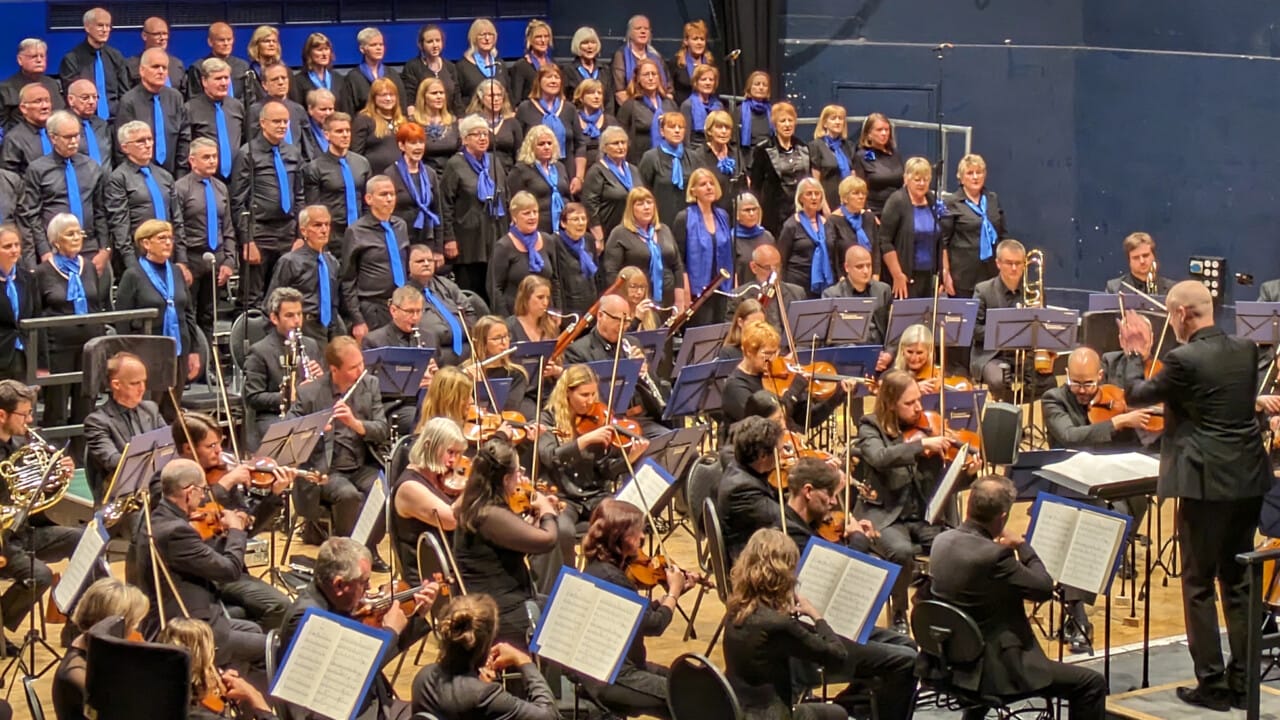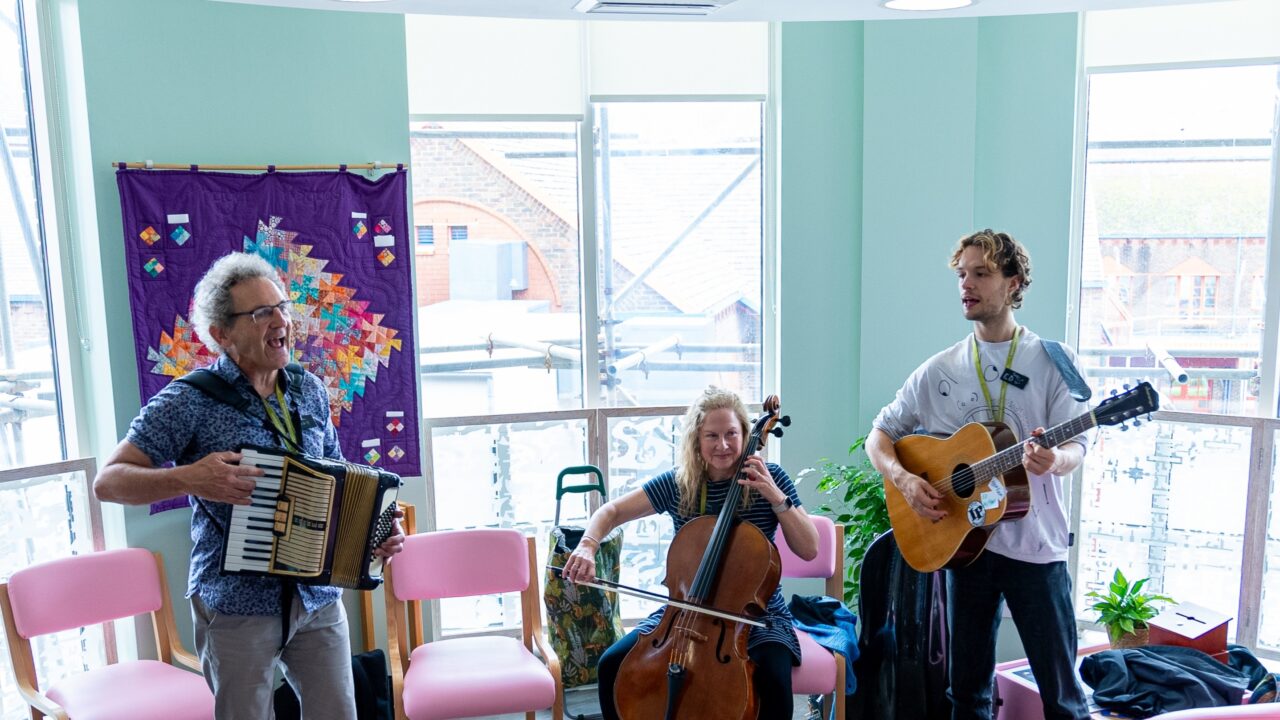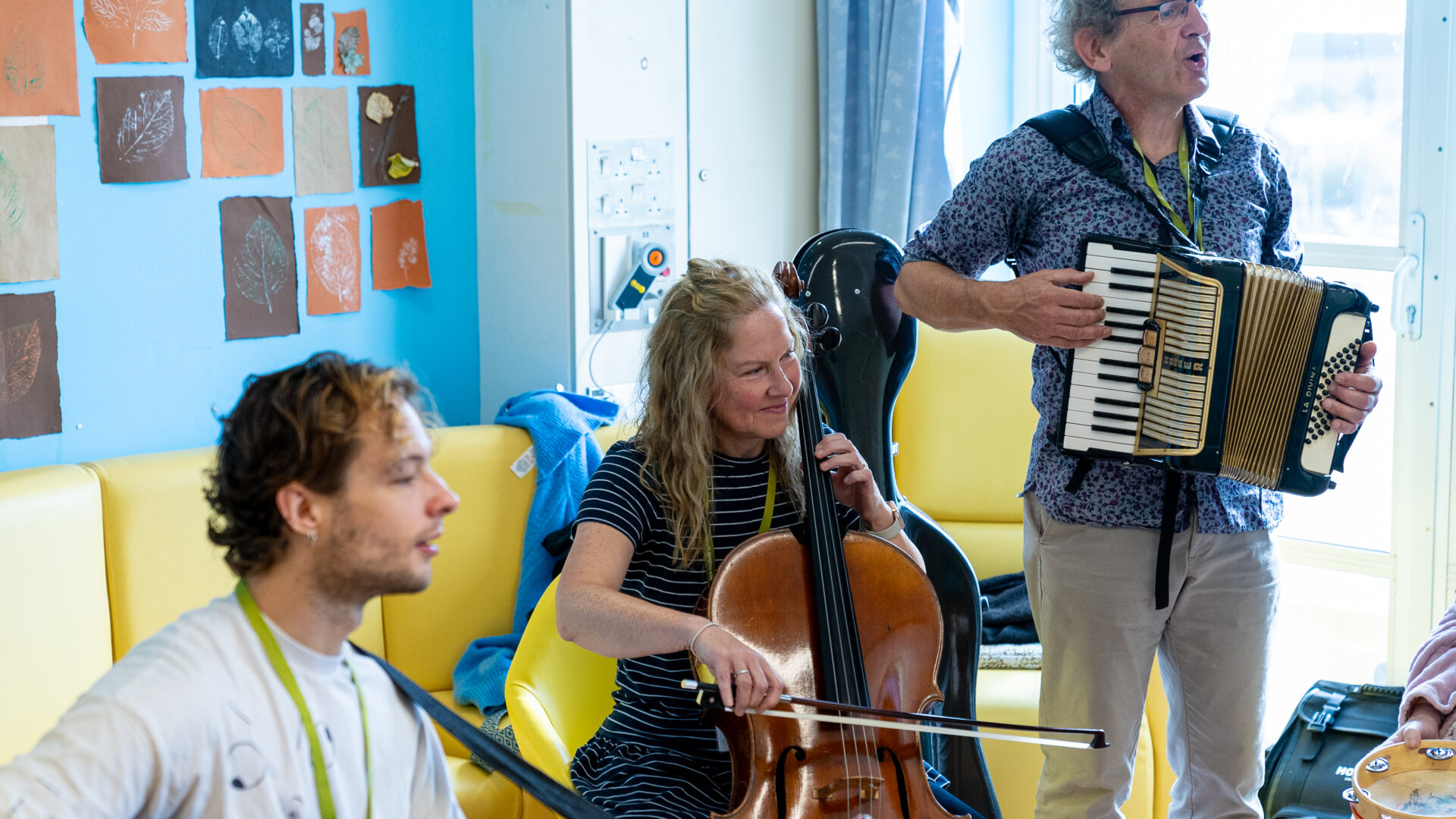Why did this partnership begin, what was the Orchestra aiming to achieve from it? At the BSO, we exist to bring music into people’s lives – and especially those that face the largest barriers in accessing it. Being admitted to a hospital or care setting is arguably one of the greatest of those barriers and that was a huge motivator for us to push ahead with this project.
The Orchestra has worked in hospitals for more than a decade, and it was really important to us to return following the pandemic. Over the years, when working in hospitals, in the simplest of terms we see that patients and staff’s mood improves after listening to and taking part in music. If you’re happier, it is proven that you will be healthier and recover quicker. With our return to this work in a post-pandemic world, we wanted to continue exploring and evidencing the case for the unique role of music in healthcare to improve people’s health outcomes, recovery rates, emotional wellbeing and overall experiences of care.
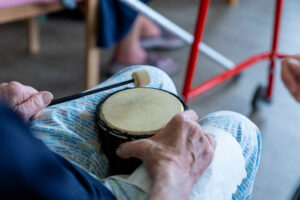
How is music being used in the programme, and for what purpose?
We are always making music with people, and it’s important to us that music-making in health and care settings takes place in an active, rather than passive, way. To achieve this, we work closely with each hospital team – and with our partners at Arts in Hospital.
In Dorset County Hospital’s Stroke Unit, we incorporate movement and language into the sessions in collaboration with the Occupational Therapy team, embedding music into patients’ rehabilitation whilst also resonating emotionally, which is so important as we know 60% of people report low mood or anxiety after a stroke. In the hospital’s Children’s Ward, music can be used as a distraction: we might get called in if someone is having bloods taken, for example, or an invitation, for anxious young people to cross the threshold into the waiting room. Whether at besides with children and families or group music making, we principally use music in these wards as a calming and regulatory activity.
“it’s important to us that music-making in health and care settings takes place in an active, rather than passive, way.”
With older people and particularly those living with dementia we are building on the wealth of evidence that shows how music can unlock people’s ability to communicate, and we see this in every visit. People who are non-verbal suddenly participate – singing all the lyrics to a song. Those who are curled in on themselves and closed off to the world, physically open and start participating, even conducting and leading the music.
Do you have any standout moments from the past year’s work with Dorset County Hospital and Arts in Hospital?
We worked with a lady whose medical notes stated she was non-verbal since being on the ward and a nurse had shared with us that she had been visibly tense and distressed earlier in the day. Her eyes were closed, fists clenched and arms flexed. However, within moments of one of our cellists playing by her bedside she had started to look up, turning to the sound of the music, tapping her hands in time with the rhythm and smiling. When the music finished and the nurse offered her some water she said, ‘I don’t want that’ and asked instead for orange juice. It was an incredibly powerful example of music reaching her in a way that nothing else could, prompting her to express her needs – and the staff were then able to care for her better. These kinds of moments happen almost every time we visit, with music giving people agency and identity.
The other standout element for me is how supported and trusted we have been by senior leaders at the Hospital; we have a truly shared vision. Thanks to the generous funding from the Garfield Weston Foundation we were ready and able to expand this work further. Garfield Weston Foundation’s support came at just the right time and we were poised and ready to go.
Has anything surprised you about the project/there been any outcomes that you didn’t expect?
As well as supporting patient’s health, a key objective has been to support the wellbeing of staff. We always approach our time in the wards acutely aware of how busy all the staff are, and ensuring that we are a helpful presence both in terms of their workload and their own wellbeing. The immediate appetite for collaborating on how music can be a useful tool in people’s healthcare was amazing, from co-designing sessions with the stroke therapy team, to the Dementia team prescribing music with patients across the hospital as part of their care. Our aspiration is that within this, staff have the opportunity to see the person behind the patient when they are engaging with music, and share more of themselves in return.
“Our aspiration is that within this, staff have the opportunity to see the person behind the patient when they are engaging with music, and share more of themselves in return.”
We’re very conscious as an arts organisation that we come from a very different discipline and that in health care people are dealing with life and death every day. It would be easy for us to assume that music might not feel like a priority to hospital staff, but we feel such a strong support for our work from all the staff there; from the gratitude of the receptionists to senior leadership; it’s deeply heartening and a validation of the place for music in the evolution of care.
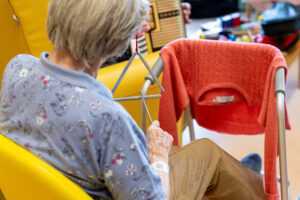
What can be learnt from bringing different disciplines (arts/care) together in this way?
Working across disciplines is always very exciting because we’re all learning something from each other; collaborating on new approaches that draw from a combined wealth of different skills, understanding and approaches.
It’s our strong belief that arts and care shouldn’t be so separate. Music is proven to lift your mood and improves health outcomes: where else do you need that if not in a place like hospital? It’s deeply inspiring to work with a trust that has that ambition and which really thinks about what ‘care’ means.
Why is it important that this work continues?
Critically, because it’s making such a difference. On an individual level, each time we play music with people their wellbeing improves. And now more than ever we want to make the case for the positive difference music makes in healthcare at a systemic level.
Underlying all of this; the NHS is in crisis. Additionally, we know that NHS staff sickness surged during the pandemic and has remained elevated ever since, in comparison to pre-pandemic levels. We believe that infusing hospitals with music has a unique impact in enhancing both patient care and staff wellbeing at the same time. What’s astounding is the cost of the intervention is so low compared to the output.
At the BSO, we work over such an extraordinary geographical region — the entirety of the South West of the UK — there’s a real opportunity to have a musician in every hospital if we rolled this programme out further; the positive impact of this on individuals could be huge.
“there’s a real opportunity to have a musician in every hospital if we rolled this programme out further; the positive impact of this on individuals could be huge.”
Has any patient feedback made a particular impression upon you?
We recently heard from a consultant in the Children’s Centre of how for one particularly anxious little boy and his mum – having been enticed into the centre because of seeing the musicians – then participated in the music while they had a delayed wait before their appointment. The consultant observed how that they were both able to be fully present for the appointment; feeling lighter, calmer and more connected. For me, hearing about how the impact of music is felt beyond the moments that we spend with patients and staff is particularly impactful.
We feel a lot of gratitude from patients, whether in a nod of a head or feedback saying, “this has made my day”. It can be difficult when people ask, “why can’t you be here every day?” It would be amazing if we could.
Learn more about Bournemouth Symphony Orchestra’s work in partnership with Dorset County Hospital, Dorset HealthCare and Arts in Hospital here
